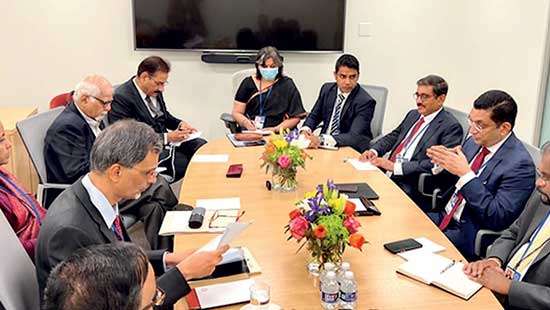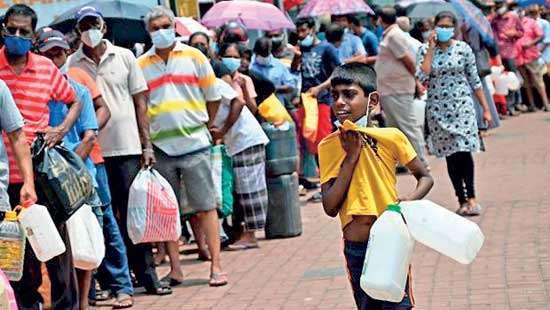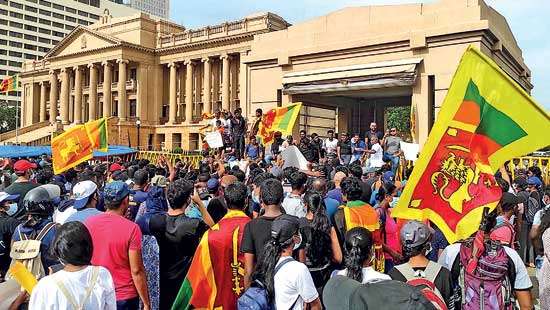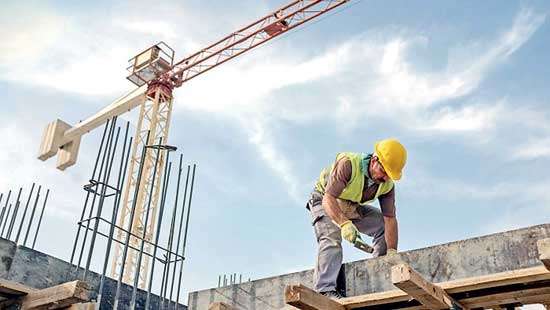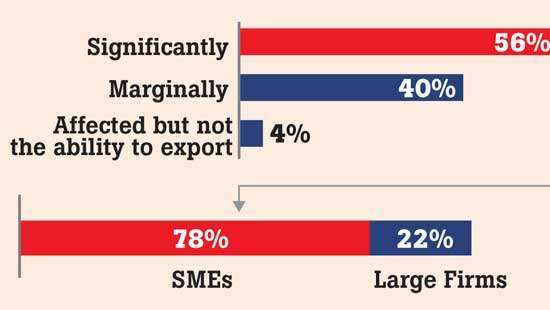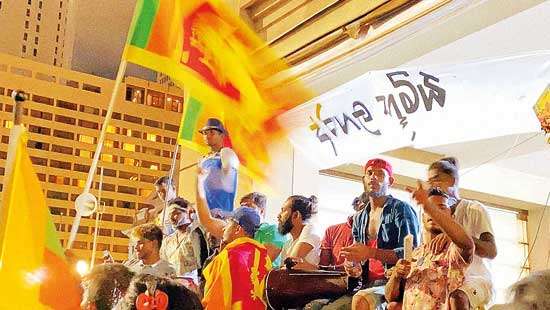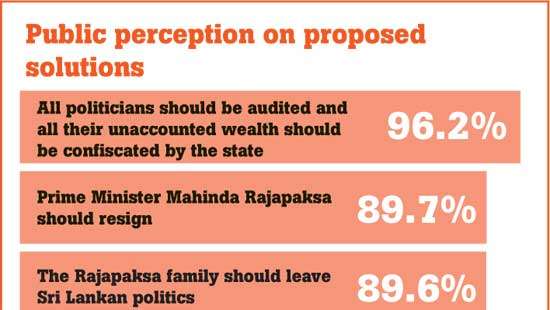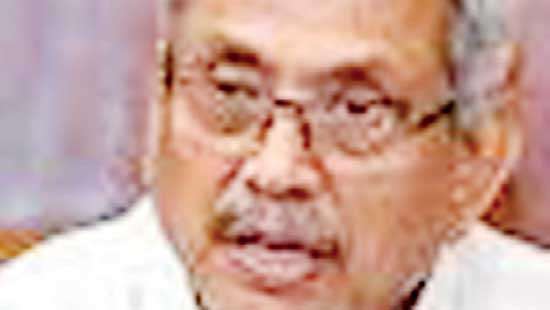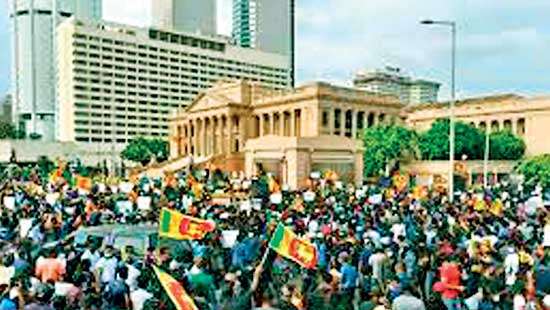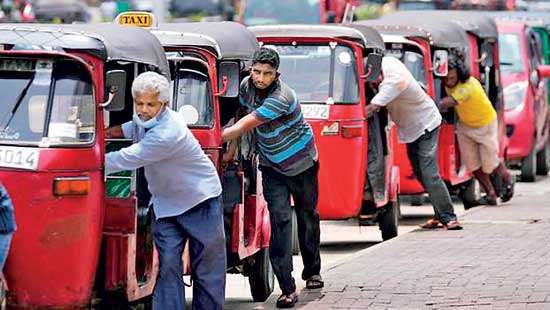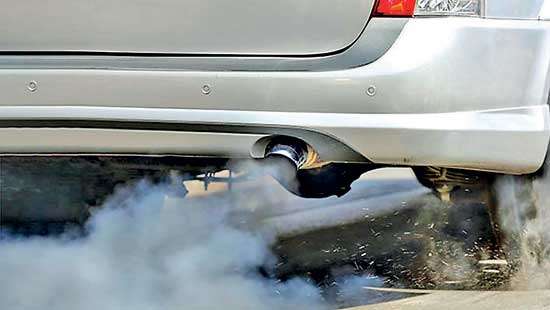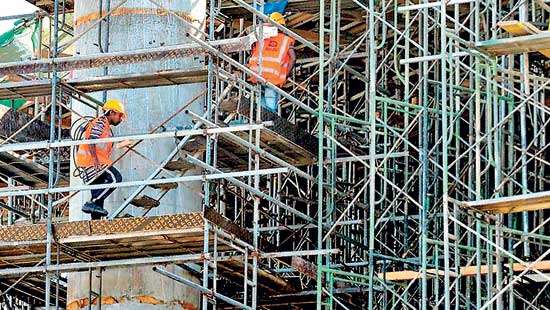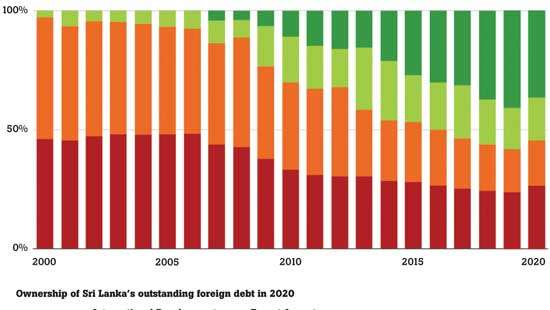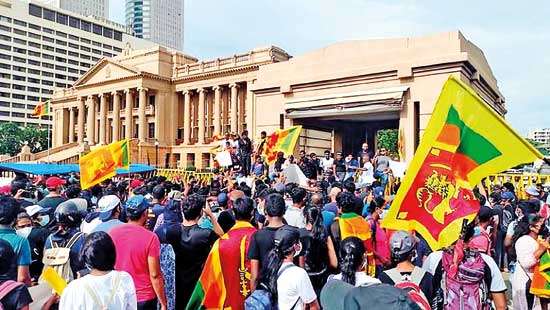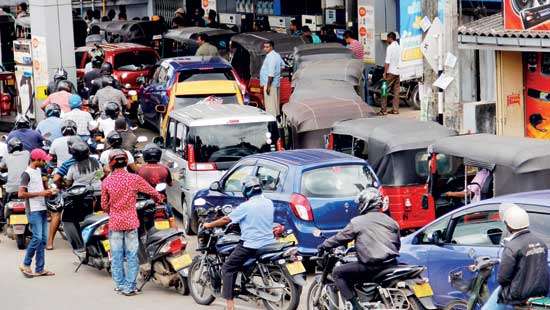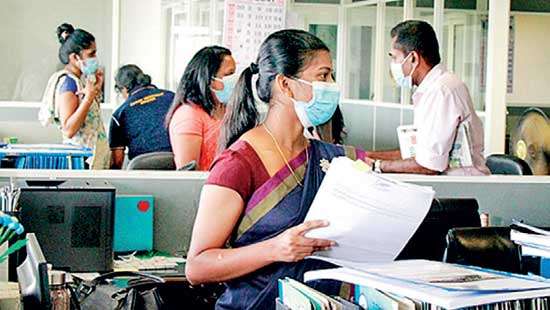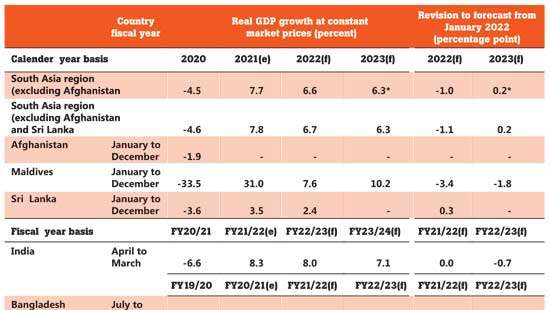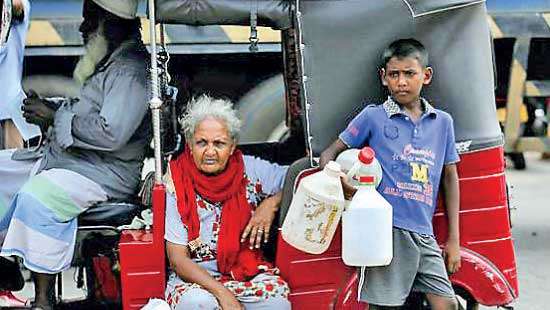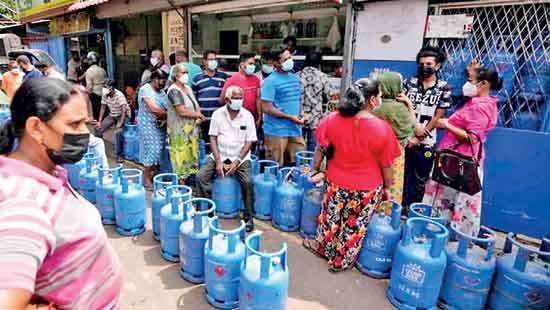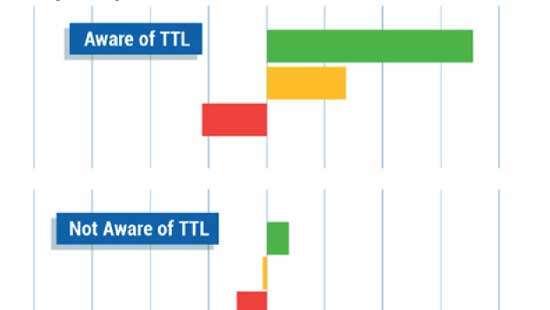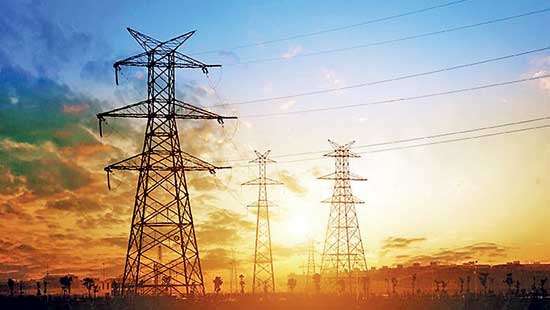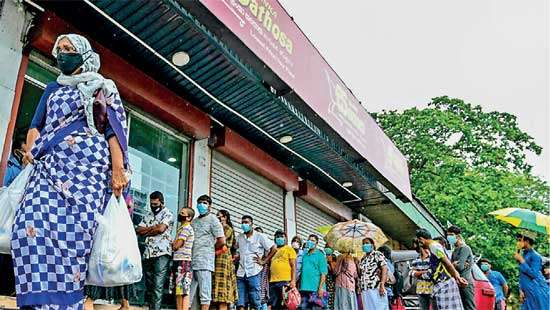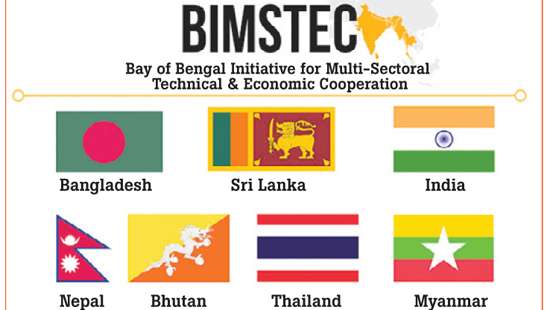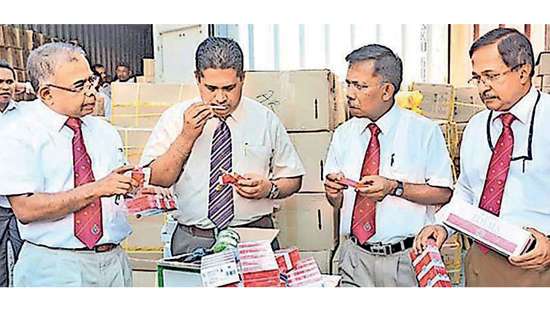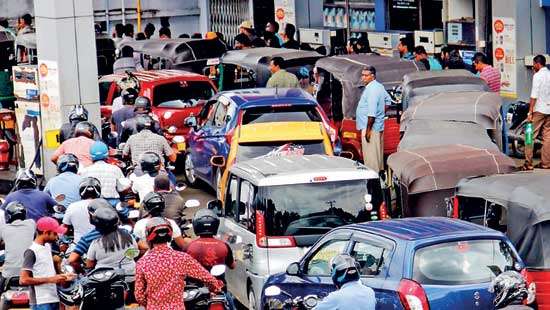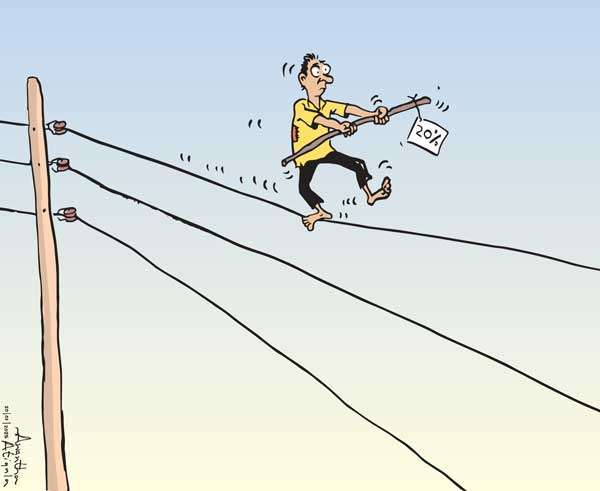Editorial
Gota Go Gama, One Galle Face and the country’s Youth
12 May 2022
 0
0
“Country is facing one of the most difficult and challenging economic, political and socially decisive times in its history …… Government has erred by banning use of chemical fertilizer and not going for a program with IMF earlier”…..These are not my words.
How can construction industry survive with present economic crisis?
10 May 2022
 0
0
The big question in the minds of many is for how long the local construction industry, which employs 650,000 workers direct and another 325,000 indirectly, could survive without a total collapse due to the multiple shocks it had to face during last 2 years.
SriLankan sets record straight on proposed leasing of new aircraft
04 May 2022
 0
0
SriLankan Airlines Ltd welcomes and respects the rich debate in the public space on matters concerning the operation of the airline in general and the ‘Notice of Procurement’ for the lease of aircraft in specific. The board and management are of the opinion that the discussion on these topics would benefit from more full information.
Organic fertiliser transition in Sri Lanka: Farmers were providing an early warning of a food shortage
29 Apr 2022
 0
0
On April 22, 2021, President Gotabaya Rajapaksa announced a ban on the importation of chemical fertiliser to make Sri Lanka “the first country in the world to be free of chemical fertiliser”. The decision was passed into law by a gazette published by the Finance Ministry on May 06, 2021.
Sri Lanka post-bankruptcy; impact on banks?
25 Apr 2022
 0
0
Sri Lanka technically became bankrupt when it announced a temporary suspension of repayment of all external debt of around US $ 50 billion, saying the country can no longer honour its commitment, owing to weak financial reserves caused by external and internal shocks.
Catalysing decarbonisation in Sri Lanka
22 Apr 2022
 0
0
We often ask the question as to why Sri Lanka should decarbonise when our carbon emissions are relatively low. This is true as the country’s share of global carbon emissions is only 0.06 percent and has been plateauing at the same rate for the last five years since 2015.
Many job losses in construction sector imminent with worsening economic crisis
21 Apr 2022
 0
0
The Chamber of Industry of Sri Lanka (CCI), which is the apex representative body of all who are engaged in construction sector, predicts that with the present economic crisis and due to several factors causing a debilitating impact, over 100,000 jobs will be lost within next 3 months, unless immediate remedial action is taken.
SL’s reluctance to tap IMF helped push it into an economic abyss
20 Apr 2022
 0
0
Sri Lanka’s worst economic crisis has triggered an unprecedented wave of spontaneous protests as the island nation of 22 million people struggles with prolonged power cuts and a shortage of essentials, including fuel and medicines.
Sri Lanka’s economy is entering a dangerous tailspin
20 Apr 2022
 0
0
Sri Lanka has just entered the deepest economic crisis in its history. Shortages and rising prices that people face today are only the first inkling of what lies ahead. Unless decisive action is taken, it can go into a destructive tailspin.
Sri Lanka’s political turmoil risks derailing the economy further
19 Apr 2022
 0
0
Sri Lanka is facing unprecedented political turmoil, and with the economy in a tailspin it is in its weakest state in decades. The country is staring down the barrel of a sovereign debt default and is exposed to external shocks.
Tackling current economic crisis: What Sri Lanka should do
19 Apr 2022
 0
0
Today we need urgently the Government Economic Plan prepared by knowledgeable and experienced professionals to restructure the economy and obtain assistance from the International Monetary Fund and other International Funding Agencies to overcome the Financial and Debt Crises. The costly delays and economic mismanagement has resulted in the present state of affairs with Sri Lanka deciding to default on its external debt.
Sri Lanka faces unsustainable debt and BoP challenges
19 Apr 2022
 0
0
Sri Lanka’s economic outlook is highly uncertain due to the fiscal and external imbalances. Urgent policy measures are needed to address the high levels of debt and debt service, reduce the fiscal deficit, restore external stability, and mitigate the adverse impacts on the poor and vulnerable, says the World Bank in its twice-a-year regional update.
Is future of emerging markets private equity?
12 Apr 2022
 0
0
Fast deteriorating risk profiles of Emerging Markets and Developing Economies (EMDE) are expected to slow down investment into these countries. Rising economic distress coupled with de-globalization momentum are triggering major business and economic reset in EMDE.
Traffic Light Labels: Do they promote healthier food choices in Sri Lanka?
07 Apr 2022
 0
0
In line with globally recommended practices to reduce the dietary risk of non-communicable diseases (NCDs), the Sri Lankan government implemented a traffic-light labelling (TLL) system for sugar-sweetened beverages (SSB) in August 2016.
Getting into driver’s seat: Apparel (and other) SMEs can show the way to a brighter future
04 Apr 2022
 0
0
In planning for the future, the past is just prologue. For modern Sri Lankan small and medium enterprises (SMEs), the prologue is dominated by massive twin global headwinds of a post-pandemic future and a war brewing in Europe.
Currency board: A solution to Sri Lanka’s economic crisis?
01 Apr 2022
 0
0
On March 8, Sri Lanka devalued the rupee against the US dollar, entering into a floating exchange rate regime. The Central Bank of Sri Lanka had to abandon the pegged exchange rate, as defending the rupee with dwindling reserves was impossible.
Impact of COVID-19 on illicit tobacco market
30 Mar 2022
 0
0
As part of ongoing research into the economic impact of illicit markets, the Research Intelligence Unit (RIU) shared some of the key findings from its latest report that covers the economic impact of untaxed tobacco consumption in Sri Lanka.

CBSL identifies 21 companies engaged in prohibited schemes
29 Mar 2022
 0
0

Trump launches cryptocurrency with price rocketing
29 Mar 2022
 0
0

SEC extends deadline for corporate finance advisor licensing
29 Mar 2022
 0
0

ICFS to host University Spot Admission Day on January 18
29 Mar 2022
 0
0

Pay the rent of Rs. 4.6Mn or vacate the residence: AKD tells MR
29 Mar 2022
 0
0

Inclement weather causes havoc again
29 Mar 2022
 0
0

Shooting in Mt.Lavinia linked to underworld dispute kills one
29 Mar 2022
 0
0

President to visit UAE as next official visit
29 Mar 2022
 0
0


